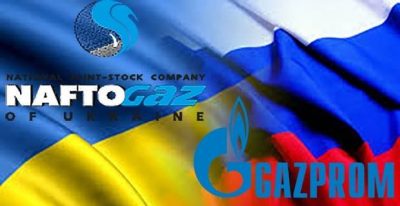Data Contradicts Ukrainian Claims that Russia Is Cheating Europe Out of Paid for Gas

All Global Research articles can be read in 51 languages by activating the “Translate Website” drop down menu on the top banner of our home page (Desktop version).
Visit and follow us on Instagram at @crg_globalresearch.
***
Ukraine’s gas transmission system operator hopes that the European Union will support them in their dispute with Russian state energy company Gazprom. According to Kiev, Gazprom is emptying its gas storage facilities in Europe in order to decrease transit through Ukraine, especially now that the Nord Stream 2 gas pipeline connecting Russia and Germany via the Baltic Sea is nearing completion. Because of this, Kiev argues that the EU’s antitrust body should intervene in the dispute as Ukraine will lose out on transit fees and Europe on gas that they have already paid for.
“In order to compensate Europeans for the amount of gas they do not receive, and not to increase additional transit through Ukraine, Gazprom is emptying its underground gas storage facilities (UGS) in Europe,” said Sergiy Makogon, the General Director of LLC Gas TSO of Ukraine.
Makogon also explained that data proves small stocks in Europe remain in Gazprom-controlled UGS and that Astora (owned by Gazprom) has less than 13% of gas, while other operators have an average of 63%. Astora and GSA (also Gazprom) in Austria has 14%, while other operators in the country have 48%. Makogon believes that the gas shortage in European UGS is largely artificial and not the root cause of recent price increases.
However, are his claims justified?
In the first seven months of 2021, Gazprom increased gas supplies abroad by 23% (compared to last year). That data also includes several deliveries to Turkey though. Deliveries to the EU also increased by around 20%. Therefore, Gazprom is not to blame for the decline in supply. In fact, other major gas suppliers have reduced exports to the EU, including those from Norway, Algeria and Qatar.
It is recalled that Gazprom and Ukrainian state energy company Naftogaz signed a 40 billion cubic meter transit agreement, with a “pump-or-pay” formula. In the first half of this year, Gazprom supplied 21.7 billion cubic meters of gas in transit through Ukraine instead of the agreed upon 20 billion, thus directly contradicting Makogon’s claims. In the first half of 2021, transit through Ukraine averaged 3.62 billion cubic meters per month, but in July, the period for which Ukraine makes the allegation, the volume of transit was even higher: 3.85 billion cubic meters. In order to implement deliveries above the minimum amount specified in the contract, Gazprom is actually forced to purchase additional capacity, even at a price up to 20% higher.
Kiev also auctions additional capacity of 64 million cubic meters per day on a monthly basis. The biggest difference is that when reserving additional capacity, Ukraine transits according to its capabilities, even without strict guarantees of immediate transfer. In Europe, such capacity is auctioned at a discount, but Kiev stubbornly isolates them for the same price. Gazprom, on the other hand, is not as stubborn at auctions and is much more flexible.
It is recalled that in the 2020/21 autumn and winter seasons, a record 60.6 billion cubic meters were pumped out of the UGS in Russia. In addition, Gazprom started the winter with stocks of 72.3 billion cubic meters. This year, Gazprom plans to start the new heating season with reserves of 72.6 billion cubic meters, demonstrating that the Russian UGS group is being prioritized before the UGS in Europe. This does not mean that Russia plans to keep Europe cold during the winter though, as much as Ukrainian hysteria alludes to this scenario.
At first, Naftogaz’s claims that Gazprom had not supplied the full amount of gas under the 2009 transit contract because it did not provide for a “pump-or-pay” formula were unfounded. Eventually, after arbitration in Stockholm, a political decision supported the validity of Kiev’s claims. At the end of 2019, Gazprom transferred $2.9 billion to Naftogaz, which went almost entirely to the Ukrainian state budget. Gazprom is likely unsure whether attempts to repeat this trick with EU antitrust bodies will follow.
However, Ukraine’s pressure campaign to ensure that it remains the main transit country of Russian gas reaching Europe has ended in naught. The Nord Stream 2 pipeline project is nearing a 100% completion, hence diminishing Ukraine’s status as an important energy hub. For this reason, Kiev is desperately attempting to stop this reality from going to fruition as missing out on transit fees will further push the country into economic calamity.
*
Note to readers: Please click the share buttons above or below. Follow us on Instagram, @crg_globalresearch. Forward this article to your email lists. Crosspost on your blog site, internet forums. etc.
Paul Antonopoulos is an independent geopolitical analyst.
Featured image is from InfoBrics

